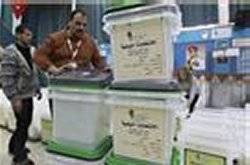Jordanians are voting in parliamentary elections boycotted by the Muslim Brotherhood, which says the electoral system is rigged in favor of rural tribal areas and against the urban poor.
Sparsely populated rural and tribal constituencies, where pro-government tribes are strong, get a bigger weighting in parliament than the Palestinian-dominated poor urban constituencies where the religious conservatives find their support.
"This is a sham election whose results will only erode the credibility of the future parliament," said Zaki Bani Rusheid, deputy head of the Muslim Brotherhood.
For many Jordanians, the economy is a key issue in the vote.
"We hope that the upcoming parliament will decrease the economic burden on the shoulders and on the pockets of the poor people," said Mahmoud Al-Sayyed Ahmed, an Amman resident.
The poll is held amid economic hardships, with IMF-guided austerity policies that the government was forced to adopt last year to avoid a fiscal crisis after years of using government money on a bloated public sector.
Last November, steep fuel price rises provoked sometimes violent protests.
The king has said the next steps to develop the country's democracy will be an overhaul of the political parties.
He wants to streamline Jordan's 23 small and fractured political parties into three or five coalitions based on ideology - right, left and center - for future parliamentary elections.
PHOTO CAPTION
Muslim Brotherhood and four smaller parties boycott polls government touts as milestone in country's democracy process.
Aljazeera


 Home
Home Discover Islam
Discover Islam Quran Recitations
Quran Recitations Lectures
Lectures
 Fatwa
Fatwa Articles
Articles Fiqh
Fiqh E-Books
E-Books Boys & Girls
Boys & Girls  Articles
Articles










